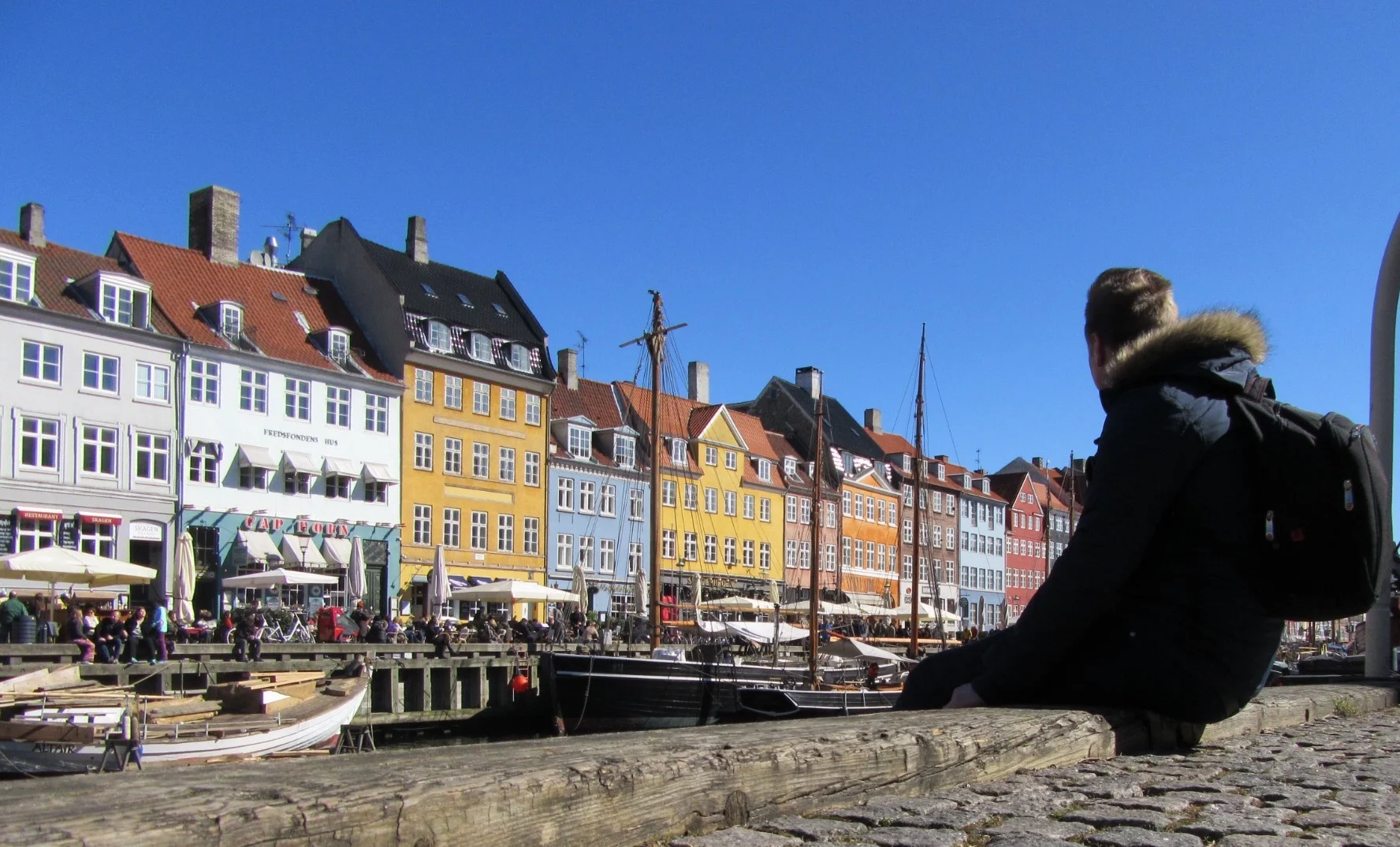Why people – even females – shouldn’t be afraid to travel alone
/Here I am at Sultan Qaboos Grand Mosque in Muscat, Oman - a trip I took alone which also saw me visit Egypt, Lebanon, Qatar and Armenia.
On 22 May 2017, I had entered the second week of my placement at Lonely Planet as part of my Masters degree in journalism. It was a Monday and I was in the tiny, warm bedroom of the Airbnb I was renting for the duration of my time down in London.
I’d just been on the phone to my girlfriend to catch up after a long day – having been a student for the best part of four years, I wasn’t used to full-time work, so it took more of a toll than it does now. Before I went to sleep, I decided I’d have a five-minute social media scroll, then resign to an 11pm bedtime.
A snap I took on my Lonely Planet placement in 2017.
What was supposed to be eleven at night turned into three in the morning.
The timeline across my social media feeds wasn’t the same that evening because the events of the Manchester Arena bombing were unfolding – a terrorist attack that took the lives of 22 innocent concert-goers, injuring more than 800 others.
It was gripping to see it play out on Twitter and Facebook, as witness accounts, videos, images and news began to trickle through. It was absolutely devastating, that people who had intended on having an enjoyable evening, seeing an Ariana Grande concert, had their worlds turned upside-down.
What made it even more harrowing was that while I was sat in a rented room in the capital, this attack was taking place just five minutes from where I lived. Something that you usually only hear about on the news, taking place hundreds of miles away from the UK was happening at a venue that I used to walk past three times a week to go to my part-time job in the city centre.
It hits hardest close to home.
I travelled alone in Cairo - the site of several terrorist attacks - back in April without incident.
People often find it bizarre that I travel alone a lot of the time, and wonder how I’ve managed going solo to places such as Egypt, Tunisia, Palestine and North Korea. I always answer the question with the above story – bad things can happen regardless of where you are, and even if you are in a place deemed to be of “higher risk,” you still have to be extremely unlucky to be caught up in something terrible.
Then the heartbreaking news of Amelia Bambridge broke.
Amelia Bambridge, who went missing on an island in Cambodia a few days ago.
So, when when I’d heard that a 21-year-old British woman had gone missing on the island of Koh Rong in Cambodia, I took an interest and closely followed the story. As someone who is obsessed with travel and is an advocate of living outside of your comfort zone, it’s great to see so many people of different backgrounds pushing themselves to do more.
From what I read, Amelia was one of those people – having the time of her life as she travelled around Southeast Asia.
Unfortunately, her story had a tragic ending. Her body was found at sea, the cause of death believed to be accidental drowning with Cambodian officials adding that her death was “not related with any other crime at all.”
The reaction to this story was split.
What was great to see is the people who were supporting the search for her, retweeting, sharing, even signing a petition to get the attention and support of the Foreign & Commonwealth Office.
On the other hand, there was the disconcerting rhetoric from some people who believed she shouldn’t have been travelling alone. Some said it was “poor parenting” to “let your child travel alone to a third-world country.”
Others struck out at the media for “encouraging young women to travel alone to dangerous countries.”
That latter tweet, at the time of writing, has over 1,400 retweets and 4,300 likes. That many people support the idea that young women shouldn’t travel alone, nor should they travel to “dangerous countries.”
Although it was part of a group tour, I visited Pyongyang - capital of North Korea - last year as a solo traveller. The FCO advises against all but essential travel to the country, yet I was perfectly fine and had a great time.
So, what counts as a dangerous country? If we take the Amelia Bambridge story as an example, she was travelling in Cambodia – a popular stop on the SE Asian tourist trail. According to the FCO, “around 162,395 British national visited Cambodia in 2017,” and most visits to the country are “trouble-free.”
Not only that, but in 2018, 263 people lost their lives in accidental drownings in the UK, according to the National Water Safety Forum – so does that mean all females should depart the country for safer shores? Of course it doesn’t.
Bad things can happen anywhere in the world – whether on a beach in Cambodia or at a pop concert in England. Of course, people should take the necessary precautions when travelling – I’m not advising against that. But when your alternative to travelling to fascinating countries is to not bother, what’s the point of avoiding harm by not living at all?






















Even in the wake of the heartbreaking Amelia Bambridge news, people shouldn’t be put off from solo travel.